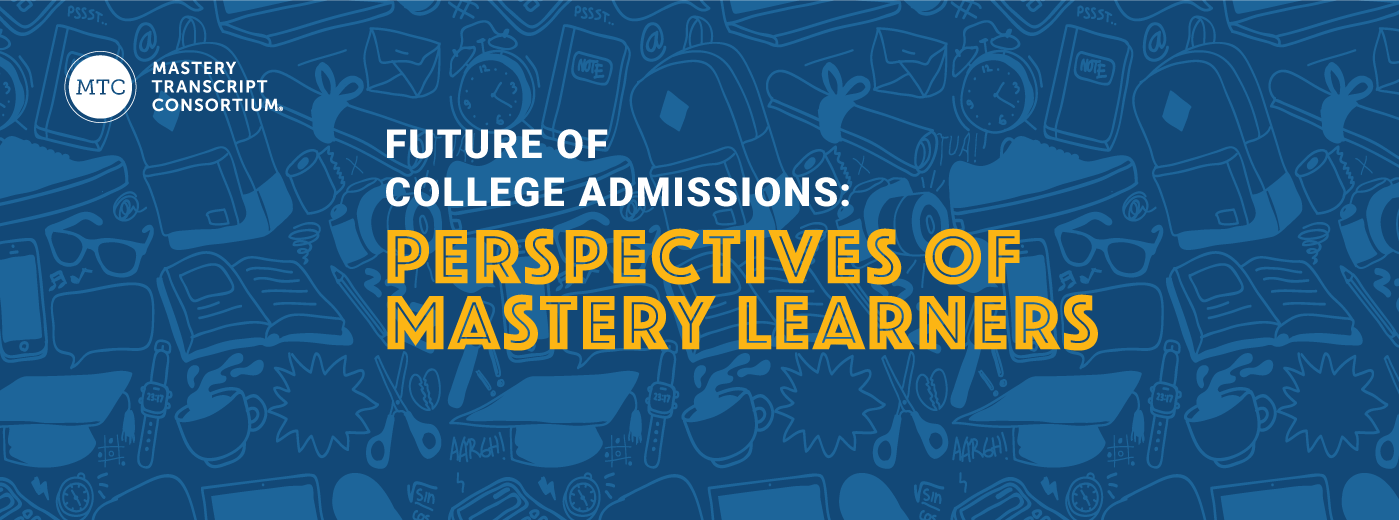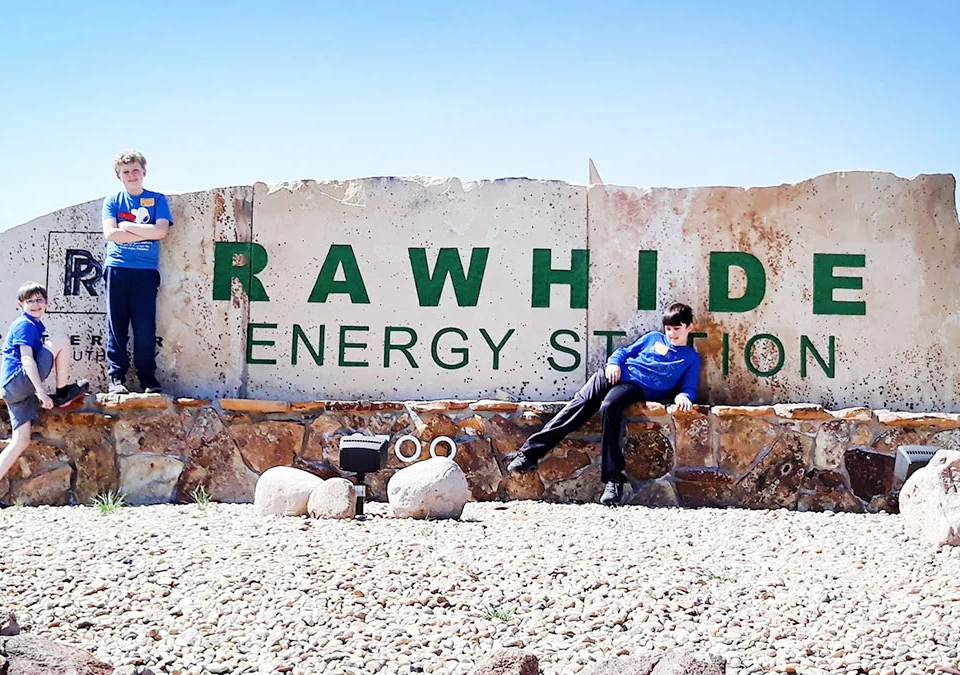Already a member? Log in to the Member Site at members.mastery.org.
Mastery Transcript Consortium® (MTC) Announces Full Availability of Mastery Transcript® Version 1.0
September 2, 2020Higher Ed Voices: College Admissions in Context
September 29, 2020Future of College Admissions: Perspectives of Mastery Learners


Student panelists to share their experiences with mastery learning and how it has prepared them for college, career, and life
Mastery Transcript Consortium today announced it is hosting the webinar, “Future of College Admissions: Perspectives of Mastery Learners” on Thursday, September 24, 2020, from 4:30 to 5:30 p.m. EDT.
Building upon the exciting range of content at the 2020 NACAC Virtual Conference, the panel is designed for college admissions professionals, school leaders, and more to hear directly from students about their mastery learning experiences, college-going process, and interactions to date with the Mastery Transcript. Edgar Montes, director of higher education engagement for MTC, will moderate. The panel of learners includes three current students and one alumna from MTC member schools.
The webinar is free and open to the public. Registration is required.
Why Mastery Learning?
There is a growing movement in education toward valuing richer, deeper learning for students, and a growing recognition that current college admissions policies — those that rely on grade point averages (GPA) and standardized test scores — do not reflect the broader competencies that student’s need for success. Rather than learning how to work collaboratively, think critically, and solve complex problems, too many students experience learning that focuses on short-term memorization and regurgitation of facts and fails to develop critical, 21st-century skills, including metacognitive, social, and emotional skills.
“What we know is that being prepared for success in college and career requires a deep sense of purpose and self; skills for lifelong learning; and the ability to apply skills to meaningful work, challenges, and opportunities,” said Stacy Caldwell, CEO of MTC. “Our MTC member schools are blazing a better path for their thousands of students and for every student out there, many of whom have been underserved by the current system. Mastery learning and the Mastery Transcript are the future of education.”
Research shows that mastery learning cultivates learning that is deep, enduring, creative, and transferable. It supports students in learning at their own pace and advancing as they master content, rather than moving forward based upon established time requirements in courses and grades. It is, by its very nature, based in equity and student well-being,, as it meets every student where they are.
Student Panelists
Evelyn Monje ‘20, Winooski High School
Evelyn Monje is a rising senior at Winooski High school where mastery learning was first introduced for the class of 2020. She will use the Mastery Transcript this year.
“I have had the opportunity to explore the transcript and am currently learning about how to apply to college with it.
I find that mastery learning allows me to be seen as a person who is engaged and works for the betterment of the world. I am seen as someone who connects with others and can make major contributions to the world through my academics.”
Stephie Siki ‘20, Winooski High School
Stephie Siki is a student at Winooski High School who will use the Mastery Transcript this year.
“In a mastery-based school, I am able to identify skills that I gained rather than classes that I took. It is very important for me to be active in the issues that are going on in my community. I am a member of the WSA (Winooski Students for Anti Racism), and I work on matters that influence my school.”
Abhi Vedati ‘20, Khan Lab School
Abhi Vedati is a rising senior at Khan Lab School, a mastery-based school affiliated with Khan Academy. He has been a student involved in mastery learning for five years and will be using the Mastery Transcript this year as part of KLS’s first graduating class.
“At Khan Lab School, I have been able to explore my passion for computer science, math, and physics at a more advanced level than would be allowed in a more traditional school. For example, I have been able to take advanced courses in these subjects and work on interesting projects with my teachers, such as a statistics paper on Alzheimer’s Disease.
As students at KLS, we also receive a large amount of individual attention from the teachers, who make a concerted effort to get to know us as individuals and help us achieve our goals in their subjects. Moreover, students at Khan Lab School are more open to following their passions than they would be if there was an expectation that they would just get a good grade in the class, and that an ‘A’ is the most important thing."-
Taylor Wussow ‘16, Clark Street Community School
Taylor Wussow attended Clark Street Community School, a proficiency-based high school in Middleton, Wisconsin. In December 2019 she graduated from Cornell College with a major in elementary education, minor in German, and a concurrent “Talented and Gifted” endorsement through Drake University.
“I wish people knew that mastery learning, in many ways, requires greater academic proficiency to graduate, not less. Students must demonstrate proficiency/mastery on each standard, not just enough assignments in the course to average a passing grade.
A mentor once told me that proficiency-based (or mastery) learning is like putting together a Lego structure, composed of elements you fit together to build the experience. For instance, red would be the art pieces, green for social studies, etc. When you design a project you find a way to fit all those pieces together and are encouraged to build your structure in a way that works for you.”




